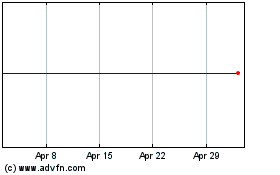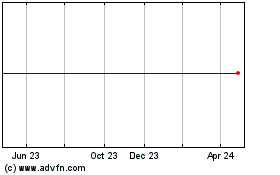Tech Funds Carry On Without Big Names -- WSJ
October 09 2018 - 3:02AM
Dow Jones News
By Asjylyn Loder
This article is being republished as part of our daily
reproduction of WSJ.com articles that also appeared in the U.S.
print edition of The Wall Street Journal (October 9, 2018).
Facebook Inc., Twitter Inc. and Google parent Alphabet Inc.
officially left the S&P 500's technology sector last month, but
investors appear to be in no hurry to follow them.
Investors have been slow to pull their money from popular
technology exchange-traded funds even though those funds no longer
invest in a handful of the companies that have been synonymous with
the rise of tech in U.S. markets.
State Street's $22.8 billion Technology Select Sector SPDR ETF
liquidated its holdings of Facebook, Twitter and Alphabet two weeks
ago, while the $22.6 billion Vanguard Information Technology ETF
sold off the shares gradually over several months. Yet the two ETFs
combined have seen just $4.3 billion in outflows, less than 10% of
their combined assets, since the S&P 500 changes were
implemented at the opening bell on Sept. 24.
The stocks' departure from the tech sector followed changes to a
widely used system that organizes companies based on where they fit
in the global economy. Computer giants like Apple Inc. and
Microsoft Corp., along with chipmaker Intel Corp. and networking
giant Cisco Systems Inc., are among the biggest companies that
still reside in the tech sector.
Removing Facebook and Alphabet is like trading away two of the
best players on a basketball team, said Matthew Bartolini, head of
SPDR Americas research at State Street Global Advisors.
So far, the remaining tech stocks have done well, but Mr.
Bartolini said investors who don't rebalance their portfolios are
taking a risk that their performance will veer widely from the new
benchmark, especially if there's a big market move. That could be a
problem for advisers and institutional money managers who aim to
meet or beat the performance of the market.
The risk is even greater with the approach of earnings season,
often a key catalyst for outsize gains and losses. Twitter's
second-quarter results, for example, sent its stock price tumbling
more than 20% on July 27. Facebook, Twitter and Alphabet report
results later this month.
"Given the size of the companies involved, and the potential
impact of tracking error, I would've thought there'd be more action
than there has been," Mr. Bartolini said.
The changes were prompted by the most significant overhaul of
the Global Industry Classification Standard, or GICS, since it was
created in 1999 by index providers MSCI Inc. and S&P Dow Jones
Indices. The system sorts more than 46,000 securities world-wide
into 11 different sectors, which are then further subdivided into
industries and subindustries.
The changes affected hundreds of indexes from both providers,
including 23 companies in the S&P 500 alone. Facebook, Twitter
and Alphabet were moved out of tech to a new "communications
services" group that replaced the former telecom group. Netflix
Inc., Walt Disney Co. and others were taken from "consumer
discretionary" and likewise moved to the new communications
sector.
As a result, State Street's tech ETF last month liquidated 9.2
million shares of Facebook worth $1.5 billion and 2.3 million
shares of Alphabet valued at $2.7 billion. On the same day, the
$15.2 billion Consumer Discretionary Select SPDR ETF sold 8.5
million shares of Disney and 2.5 million shares of Netflix, worth a
combined $1.8 billion.
Investors' delay in changing their portfolios may stem from
reluctance by asset managers to sell the tech ETF at a profit,
which could result in taxable gains for their clients. Others may
want to avoid a stampede and instead rebalance gradually.
There are signs that investors are beginning to readjust. State
Street's Consumer Discretionary Select Sector SPDR, which sold
Netflix, Disney and others, saw $582 million in outflows in Monday
through Thursday of last week . The new Communications Services
Select Sector SPDR ETF, which launched in June to give investors
time to shift to the new sector, has picked up almost $2 billion in
new assets since the start of the month, making it one of the most
successful fund launches of the year. Vanguard's competing ETFs are
seeing similar patterns.
"The risk isn't huge just yet," Mr. Bartolini said. "But every
day they wait, that tracking risk is going to get bigger and
bigger."
Write to Asjylyn Loder at asjylyn.loder@wsj.com
(END) Dow Jones Newswires
October 09, 2018 02:47 ET (06:47 GMT)
Copyright (c) 2018 Dow Jones & Company, Inc.
Twitter (NYSE:TWTR)
Historical Stock Chart
From Mar 2024 to Apr 2024

Twitter (NYSE:TWTR)
Historical Stock Chart
From Apr 2023 to Apr 2024
